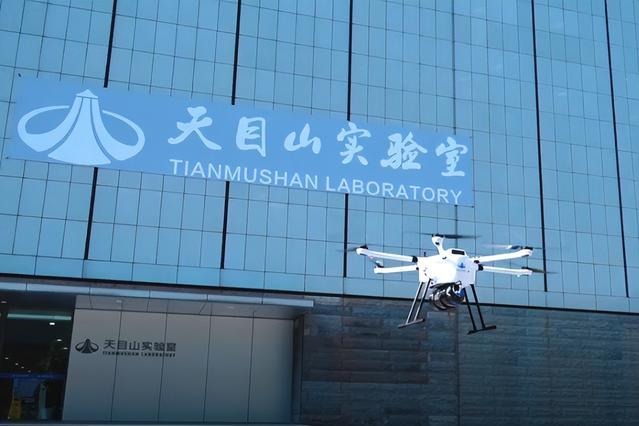What China can learn from Germany

| Roland Berger says while China's manufacturing industry has made huge strides in the past 30 years, there is still a great deal of room for improvement. Provided to China Daily |
Building a solid reputation for product quality demands time, doyen of consultants says
Trust the Germans to come up with the goods when it comes to technology and engineering, and the marketing item. The country that brought us "Das Auto" and "Vorsprung durch Technik" (Progress through technology) has now introduced to the world "Industry 4.0". That is the moniker the German government has adopted to describe the mass computerization and mechanization of traditional industries, which some are calling the fourth industrial revolution.
One of those who knows a lot about Industry 4.0, and who has spent the best part of half a century getting commercial and corporate messages across, is Roland Berger, head of Roland Berger Strategy Consultants, based in Munich and with nearly 50 offices in 35 countries.
Even though the term Industry 4.0 was, like Berger, born in Berlin, he believes its applications are as relevant to China as they are to his own country.
While China's manufacturing industry has made huge strides in the past 30 years, there is still a great deal of room for improvement, he says, not to mention opportunities for China and Germany to work together.
"China and Germany are already much more similar than they are different in terms of income and level of development. Both are highly industrialized, open, manufacturing-oriented, export-focused economies. Both are clear winners of the past several decades of globalization and both have successfully weathered the global financial crisis."
Berger was born in 1937, and his father Georg was the head of a food company and for a time a top official in the economics ministry of the Third Reich before quitting in the aftermath of Kristallnacht in November 1938. Near the end of World War II, Berger senior was a prisoner in Dachau concentration camp.
Roland Berger founded his consultancy in Munich in 1967 after quitting as a partner in an American consulting firm based in Boston and Milan.
Roland Berger Strategy Consultants has since grown into one of the world's top five strategy consultancies. Starting with the company's founding, Berger was CEO for 36 years, and until 2010 chairman of the supervisory board.

Just as the consultancy has changed dramatically over the years, Berger says the phrase "Made in Germany" has taken on a completely different dimension. For most people it denotes top quality, he says, which was not always the case.
"The label was originally introduced in Britain by the government to mark German products more obviously, as German manufacturers had been falsely labeling inferior goods with the marks of renowned British manufacturing companies and importing them into the United Kingdom."
Not until later, when German manufacturing standards improved, did "Made in Germany" become associated with product reliability and quality, Berger says.
As with German products in the early days, those selling anything made in China now strive to break its "cheap and inferior quality" image, he says. That means China can learn from Germany.
"Improving the image of 'Made in China' involves not only raising and sustaining the quality of products, but also improving the standards in factories with regard to social, environmental and other issues.
"Both government bodies and industrial associations can push this process, for example, by setting regulations or encouraging companies to voluntarily adhere to certain standards."
In addition, China's diminishing demographic dividend has forced the country to change its development path, he says.
"It's true that China is likely to lose its cheap labor advantage due to a diminishing labor supply. To deal with that and maintain the competitiveness of its economy, it will have to increase the productivity of its human capital."
This will include introducing advanced management skills to better control cost and boost efficiency on the one hand, and developing its own innovations rather than keep relying solely on playing technological catch-up instead, on the other, Berger says.
"Also, China should nurture a mature vocational training system that is closely and dynamically linked to industry. It would not only provide a steady supply of highly skilled graduates, but also help avoid unemployment among young people.
"Similar to Germany's vocational training system, the Chinese government should, first, expand the legal and administrative framework for vocational traineeships; second, encourage Chinese companies to engage in building a systematic vocational training system that delivers the skills they need and, third, campaign for the acceptance of high-skilled vocational training as a solid start to a successful career, which is in many cases is equal or even preferable to a university degree with theoretical knowledge and uncertain prospects."
As China transforms its manufacturing, the two countries will have many opportunities to work together, Berger says.
German companies have played a key role in China's economic and technological development, and Chinese companies that have gone global have found a wide-open door for outbound investment in Germany, he says.
"Further efforts could concentrate firstly on creating a more favorable policy environment for even closer economic cooperation, and secondly on initiating the next phase of development.
"There are some experiences in Germany's development history which China can learn from: for example, Germany's government partnerships with industrial R&D that promote innovation, government efforts to foster industrial clusters and networks, Germany's world-renowned vocational training system, etc."
The computerization and mechanization understood as part of Industry 4.0 covers a new interconnected industrial landscape that includes cyber-physical systems, robots, big data and other cutting-edge areas.
"China adjusts to new technology very fast, and Germany is very receptive when it comes to embracing technology revolutions. We have the leading edge on manufacturing. In this way, I personally really look forward to the cooperation between the two nations."
Small and medium-sized enterprises will play an important role in Industry 4.0, he says. However, at present few Chinese SMEs possess high-quality patented products, so most serve as extended workbenches for multinationals.
Berger points to German SMEs as exemplars for their Chinese counterparts. Such firms rely on clear product positioning, for example, to establish themselves in the high-priced premium segment. To achieve this positioning, they require technological leadership, which they can achieve by following a rigorous strategy on technology.
Equally important are organization and leadership, he says.
"Of course, as the socio-political framework is different, not all of these aspects can be transferred exactly to Chinese companies. Also, Chinese managers are already developing their own new way of running companies. My suggestion is that they stay open-minded and integrate ideas from other management models where appropriate."
Even as momentous change takes place, environmental issues should never be neglected, Berger says. Like China now, Germany has had to grapple with serious environmental problems.
"In our densely populated country, this led to a lot of public resentment and put pressure on politicians and companies. The success of the Greens (in) German parliaments since 1980 was a consequence of that. Subsequently, the government introduced laws and regulations and gradually the situation improved."
Today, green technology made in Germany is exported worldwide and is important to the country economically, he says.
For him, the key question now is how society achieves economic growth while reducing the use of resources.
"That's a matter for all countries. Most important is the question of how clean and sustainable energy can be made available without weakening industrial competitiveness through high energy prices and endangering supply security. I see this as an issue both China and Germany will face in the coming years."
wangchao@chinadaily.com.cn
(China Daily Africa Weekly 07/11/2014 page32)
Today's Top News
- China remembers victims of Nanjing Massacre, 88 years on
- New plan will be a road map for a stronger future
- Taiwan's character of the year a vote against confrontation
- Strengthened resilience key for economy
- Video sheds new light on Japan's wartime atrocities
- Xi: World yearns for peace, trust more than ever































